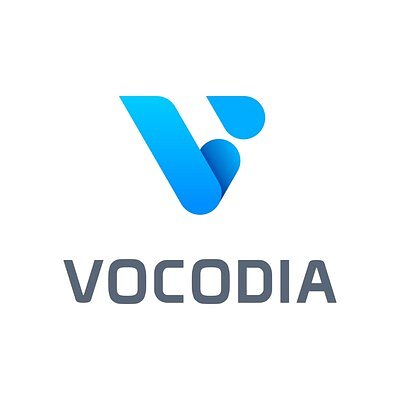
AI-Powered Legal Leads: Vocodia Bets on Quality Over Quantity in New Campaign
Vocodia aims to disrupt legal lead generation with an AI-driven approach focused on delivering ‘signed retainers,’ but faces regulatory hurdles and intense competition in a rapidly evolving market.
AI-Powered Legal Leads: Vocodia Bets on Quality Over Quantity in New Campaign
By Carol Moore
BOCA RATON, FL – Vocodia Holdings Corp. is making a bold bet on the future of legal lead generation, partnering with Tort-X and SAS to launch a new campaign focused on delivering high-quality leads – not just names and numbers, but signed retainers – directly to personal injury law firms. The initiative leverages artificial intelligence to pre-qualify prospects, aiming to cut down on wasted time and resources for attorneys. However, Vocodia faces a competitive landscape and increasingly complex regulatory hurdles in a market undergoing rapid transformation.
Vocodia’s approach differs from traditional lead generation models, which often rely on high volumes of unqualified leads. The company claims its AI-powered system, built by SAS, meticulously screens prospects based on criteria like accident specifics, treatment dates, insurance coverage, and the absence of prior legal representation. This stringent qualification process, they assert, delivers leads that are further along in the sales cycle and more likely to convert into paying clients.
“The goal is to eliminate the noise,” explained a source familiar with Vocodia’s strategy. “Law firms are overwhelmed with leads that don't pan out. We’re focusing on delivering a smaller number of highly qualified prospects who are genuinely interested in pursuing a case.”
A Competitive Landscape & Rising Regulatory Scrutiny
While Vocodia aims to differentiate itself with its “signed retainer” model, the company enters a crowded market. Several established players and emerging startups are already utilizing AI to streamline legal lead generation. Companies like Martindale-Nolo, Hona, and Legal Leads Group offer various AI-powered solutions, ranging from client intake automation to predictive analytics.
“The legal tech space is becoming increasingly competitive,” notes a legal industry analyst. “Everyone is trying to harness the power of AI to improve efficiency and client acquisition. Standing out requires a truly innovative approach, and the 'signed retainer' model is certainly interesting.”
Beyond competition, Vocodia must navigate a complex web of federal and state regulations governing lead generation and data privacy. The Telephone Consumer Protection Act (TCPA), with recent amendments closing loopholes related to lead generation, is a major concern. The FCC’s stricter consent requirements necessitate “one-to-one” express written consent, making it more difficult to obtain and verify valid consent for marketing communications.
“Compliance with the TCPA is critical,” warns a regulatory expert. “Companies need to have robust systems in place to document consent and ensure they are not contacting individuals who have not opted in.”
Furthermore, several states, including California, Colorado, and New York, are enacting AI-specific legislation addressing issues like algorithmic bias, data transparency, and consumer protection. Vocodia’s campaign targets 26 states, requiring the company to comply with a patchwork of differing regulations. States with “No Pay, No Play” laws, like Alaska and California, also impose unique requirements on personal injury claims, influencing lead qualification criteria.
Financials and SAS Acquisition
The acquisition of SAS is central to Vocodia’s strategy, with the company valuing the AI firm at approximately $10.5 million based on its annual recurring revenue (ARR) and pipeline. While Vocodia cites SAS’s ARR as $697,000 in press releases, independent verification of this figure is currently unavailable. The integration of SAS’s AI technology is expected to fuel Vocodia’s lead qualification process and enhance the overall efficiency of the campaign.
Vocodia’s financial health, however, is a matter of concern for some observers. The company has faced recent stock volatility, and its ability to sustain its investment in AI and comply with evolving regulations remains uncertain. A source close to Vocodia stated that the company is actively seeking additional funding to support its growth and expansion.
The Future of AI-Powered Legal Lead Generation
The integration of AI into legal lead generation is poised to continue transforming the industry. Experts predict that AI-powered tools will become increasingly sophisticated, enabling more precise lead targeting, automated communication, and predictive analytics. However, ethical considerations, data privacy concerns, and regulatory hurdles will remain prominent challenges.
“The key to success will be finding the right balance between innovation and responsibility,” explains a technology consultant. “Companies need to leverage the power of AI while upholding ethical standards and protecting consumer rights.”
Vocodia’s bet on quality over quantity, coupled with its investment in AI and its focus on delivering “signed retainers,” represents a bold attempt to disrupt the legal lead generation market. However, the company faces significant challenges in navigating a competitive landscape and complying with evolving regulations. The success of Vocodia’s campaign will ultimately depend on its ability to deliver on its promises and demonstrate a tangible return on investment for its clients.
Whether Vocodia’s approach will redefine the industry remains to be seen, but its initiative underscores the growing importance of AI and data analytics in the future of legal lead generation.
